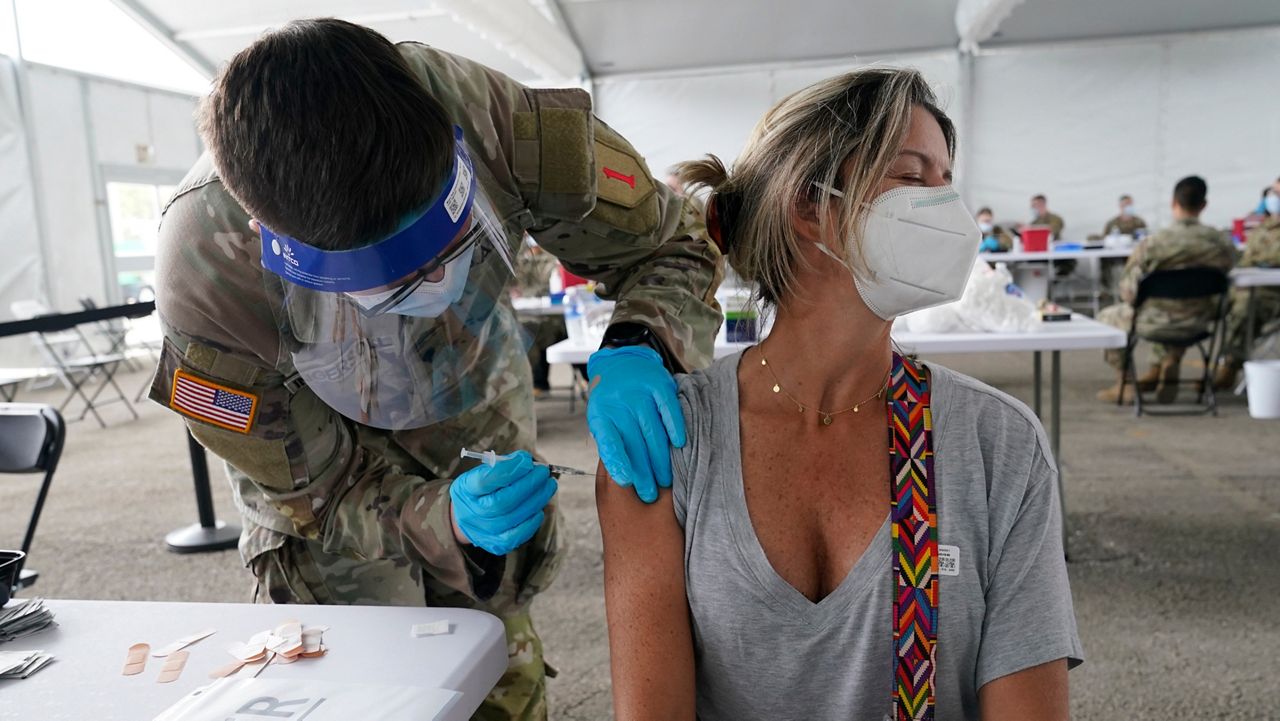FLORIDA — What we know is that all adults over the age of 18 will be allowed to get the COVID-19 vaccine beginning April 5.
What we don’t know, according to Dr. Deepa Verma with Synergistiq Integrated Health, is how they might feel afterward.
“There’s no way to predict this. So, when my patients ask me, ‘Dr. Verma, is there going to be a response? How am I going to feel?’ I can’t tell them. I don’t know,” said Dr. Verma.
What You Need To Know
- Starting April 5, Floridians 18 and older will be able to get the vaccine
- When it comes to side effects, doctors say it all depends on the person
- Johnson & Johnson reported reactions in more than 60% of younger patients and 45% of older patients
- More coronavirus news
So far in Florida, the vaccine rolled out to the 65+ age group, then 60+, and 50+.
It’s also open to health care workers and teachers.
A lot of those people saw effects that align with what we saw in the vaccine trials.
Johnson and Johnson reported reactions in more than 60 percent of younger patients, and 45 percent of older patients.
Moderna and Pfizer saw similar numbers.
“Well, you’re introducing something new into the body. So what happens, you recruit your immune system, all your cells, it’s like an army that you’re recruiting. And when they recognize something foreign that’s coming into the body, anything. Any pathogen or virus, any foreign material or substance, anything that’s not meant to be in the body that’s synthetic, even foods that you eat, artificial dyes or preservatives, the body releases this immune response,” said Dr. Verma.
That attack and how severe your reaction is to it could depend on several factors, including baseline health or blood type.
Those things are still being studied, but the CDC does list a range of possible side effects on their website.
However, Dr. Verma knocks down the rumors that one vaccine has stronger side effects than the other or that if you’ve previously had COVID-19, it might be worse.
She says a reaction or lack of reaction does not coincide with the vaccine’s effectiveness.
It’s called the goldilocks phenomenon.
“When you get the vaccine, you either respond too much, too little, or just the right response. And there’s no way to gauge that, it’s very individualized,” said Dr. Verma.
She says the best way to prepare for your vaccine is to hydrate, eat well, and don’t overthink it, because, she says, your mind is the best medicine.



